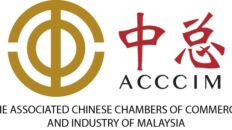Disproportionate Increases Without Transparency
Although PKA notes that the last major tariff review occurred in 2015 and that storage rates haven’t changed since 1966, this alone cannot justify the sharp hike of up to 243%. Any such adjustments must be guided by a clear, transparent cost-recovery framework, especially when businesses are already grappling with systemic delays—often unrelated to port operations, such as inspection bottlenecks. Without full disclosure of cost structures or benchmarking, stakeholders are left with more questions than answers.
Benchmarking Claims Do Not Reflect Ground Realities
PKA’s assertion that Port Klang remains cost-competitive in the region overlooks the real charges faced by Malaysian shippers. While the official handling fee may appear lower on paper (RM390 per TEU), shippers often pay inflated Terminal Handling Charges (THC) imposed by shipping lines, averaging RM480 per container. Without reforming this billing model, tariff increases will only widen the gap between official rates and real-world costs—putting Malaysia on par with higher-cost hubs like Singapore, and above regional peers like Vietnam and Indonesia.
FMM reiterates its longstanding call for a direct billing mechanism between port operators and shippers, which would eliminate unnecessary mark-ups and improve cost transparency.
Rising Operating Costs Must Not Be a Blanket Justification
We recognise that port operators face operational cost pressures, but the justification for passing these costs on to businesses is weak, particularly when operators are already contractually responsible for infrastructure funding. Government data shows federal port operators earned over RM32 billion from 2019 to 2023—indicating strong financial standing.
Unless a detailed cost breakdown is provided, there is a real risk of double recovery, where shippers pay for costs already absorbed in existing agreements.
Downplaying the Impact on Businesses and Consumers
PKA’s claim that the impact per kilogram of goods is minimal misses the broader issue. Businesses—especially SMEs—are facing cumulative cost pressures from multiple fronts, including the expanded Sales and Services Tax (SST), proposed electricity tariff hikes, and global trade uncertainties. Port charges, though a single component, are fixed and unavoidable, and thus disproportionately impactful. These hikes will ripple through the entire supply chain, ultimately affecting consumer prices and business competitiveness.
Tariff Hikes Undermine Malaysia’s Competitiveness
While Malaysia has made gains in global rankings—moving up in the Logistics Performance Index and IMD Competitiveness Index—true competitiveness is built on predictable, efficient and cost-effective trade infrastructure. The proposed 30% hike in handling fees and over 200% surge in storage charges contradict this trajectory, and risk eroding the country’s appeal at a time when regional competitors are investing heavily in more affordable port alternatives.
FMM stresses that national competitiveness must be anchored in structural cost reforms, stakeholder dialogue, and transparent pricing policies.
A Call for Constructive Engagement
FMM respects the role of PKA and all government agencies in shaping national infrastructure. However, the current justification falls short of addressing real business concerns. We urge the government to:
- Defer implementation of the tariff hikes;
- Disclose the detailed cost-recovery model;
- Engage in renewed consultations with affected industry players;
- And pursue structural reforms to the billing and tariff model.
With the right balance between cost recovery and business sustainability, Malaysia can strengthen its logistics ecosystem without compromising on its economic resilience or global competitiveness.









